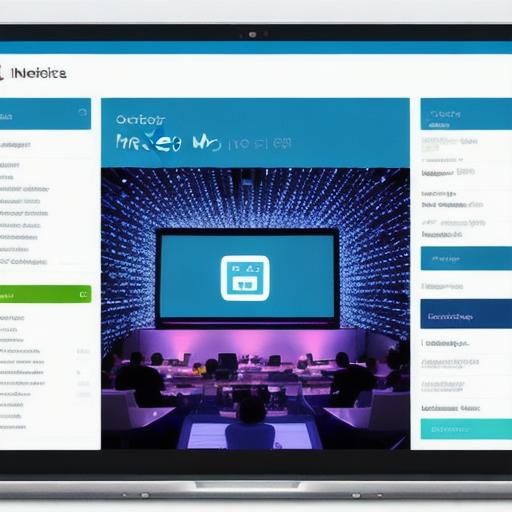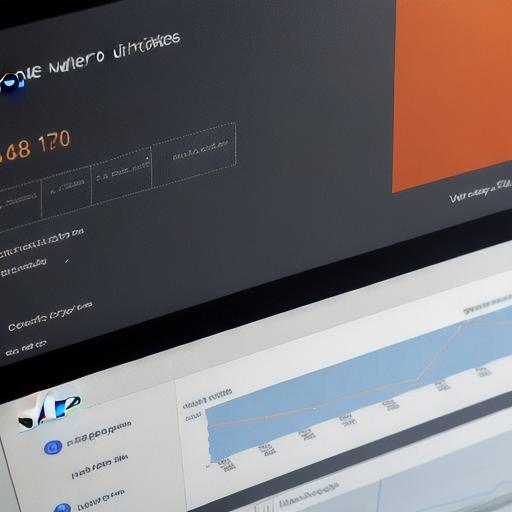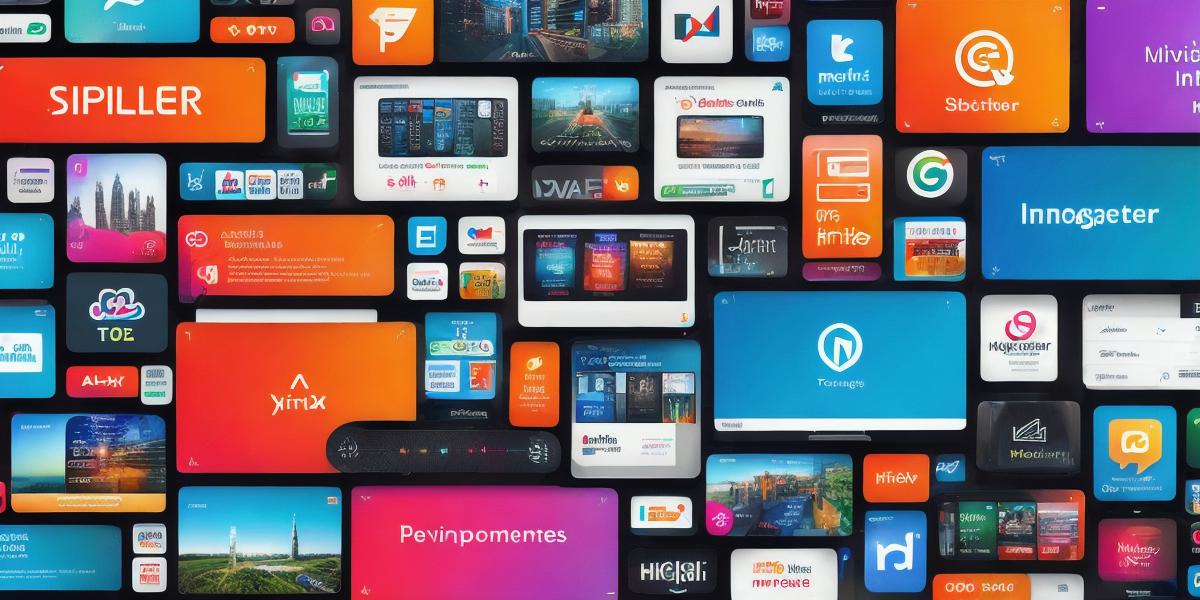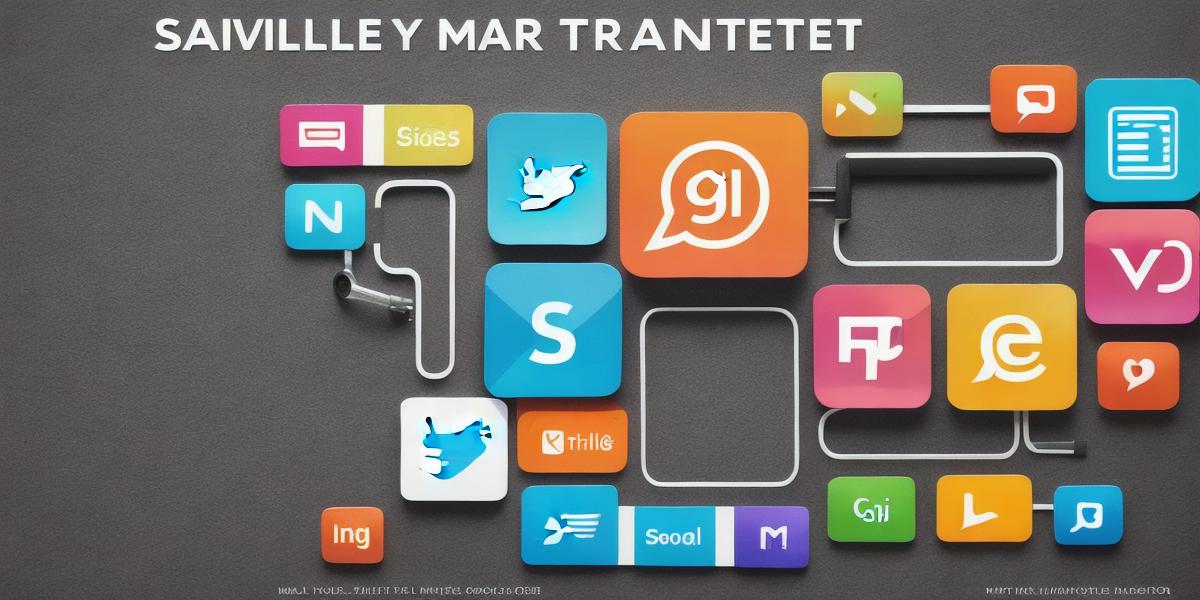Marketing is an essential component of any business, as it determines how your products or services are received by your target audience. With the right tools in place, you can effectively promote your business and increase your chances of success. In this article, we will explore some of the best marketing tools that you can use to promote your business.
1. Google Analytics
Google Analytics is a powerful tool for tracking your website’s traffic and analyzing user behavior. It provides valuable insights into how users interact with your website, including where they come from, what pages they visit, and how long they stay on each page. This data can help you optimize your website to better meet the needs of your target audience, as well as identify potential areas for improvement in your marketing strategy.
2. Hootsuite Insights
Hootsuite Insights is a social media analytics tool that allows you to monitor and analyze your social media presence across multiple platforms. It provides insights into user engagement, sentiment analysis, and content performance, which can help you tailor your social media strategy to better resonate with your target audience. With Hootsuite Insights, you can track key metrics such as likes, shares, comments, and followers, as well as identify potential influencers or trending topics that you can leverage to boost engagement.
3. Mailchimp
Mailchimp is an email marketing tool that allows you to create and manage email campaigns for your business. It provides a range of features such as list segmentation, automation, and personalization, which can help you effectively target your audience with targeted and relevant content. With Mailchimp, you can easily track the performance of your email campaigns, including open rates, click-through rates, and conversion rates, which can help you optimize your campaigns to better achieve your marketing goals.
4. Ahrefs

Ahrefs is a powerful SEO tool that helps you monitor and analyze your website’s search engine rankings, as well as identify potential opportunities for link building and keyword research. It provides valuable insights into your competitors’ strategies, including their keyword usage, backlinks, and content marketing efforts, which can help you optimize your own strategy to improve your search engine rankings and increase your visibility online.
5. Canva
Canva is a graphic design tool that allows you to create professional-looking visuals for your business, including logos, flyers, and social media posts. It provides a range of templates, images, and design elements that you can use to quickly and easily create high-quality designs that will help you stand out from the competition. With Canva, you can create custom designs that are tailored to your brand and resonate with your target audience, which can help you increase engagement and drive more conversions.
6. Buffer
Buffer is a social media scheduling tool that allows you to schedule and post content across multiple social media platforms at once. It provides insights into user engagement, including when the best times to post are for each platform, as well as analytics on your content’s performance. With Buffer, you can streamline your social media strategy and save time by batch scheduling content in advance, which can help you stay consistent with your brand messaging and increase engagement.
7. Hubspot
Hubspot is an all-in-one marketing, sales, and service platform that provides a range of tools for businesses to optimize their marketing efforts. It includes features such as lead generation, email marketing, social media management, and analytics, which can help you effectively target your audience with targeted and relevant content. With Hubspot, you can track the performance of your campaigns across multiple channels, including email, social media, and website traffic, which can help you optimize your strategy to better achieve your marketing goals.
Case Studies: Real-World Examples of Effective Marketing Tools in Action
To further illustrate the benefits of these marketing tools, let’s take a look at some real-world examples of businesses that have successfully used them to promote their brand and drive more conversions.
1. Glossier
Glossier is a beauty brand that has built a strong following on social media by creating a unique brand identity and leveraging the power of influencers. They use Hootsuite Insights to monitor their social media presence, including engagement rates and sentiment analysis, which helps them tailor their content to better resonate with their target audience. They also use Mailchimp to create targeted email campaigns that are personalized to each customer’s interests and preferences.
2. Hubspot
Hubspot is a marketing, sales, and service platform that uses its own tools to promote its brand and drive more conversions. They use Google Analytics to track website traffic and analyze user behavior, which helps them optimize their website to better meet the needs of their target audience. They also use Canva to create high-quality visuals that are tailored to their brand identity, including logos, flyers, and social media posts.
3. Allbirds
Allbirds is a sustainable footwear brand that has built a strong online presence by leveraging the power of SEO and content marketing. They use Ahrefs to monitor their search engine rankings and identify potential opportunities for link building and keyword research, which helps them improve their visibility online. They also use Buffer to schedule and post content across multiple social media platforms at once, which helps them stay consistent with their brand messaging and increase engagement.
The Science Behind Effective Marketing Tools
While these marketing tools are essential for any business looking to promote their brand and drive more conversions, it’s important to understand the science behind their effectiveness. By leveraging data and analytics, businesses can make informed decisions about how to effectively target their audience with targeted and relevant content.
For example, Google Analytics provides insights into user behavior on your website, including where users come from, what pages they visit, and how long they stay on each page. This data can help you optimize your website to better meet the needs of your target audience, as well as identify potential areas for improvement in your marketing strategy. Similarly, Hootsuite Insights provides insights into user engagement on social media platforms, including likes, shares, comments, and followers, which can help you tailor your content to better resonate with your target audience.
Expert Opinions: What the Experts Say About Marketing Tools
To further illustrate the importance of marketing tools in promoting a business, let’s hear from some experts in the field.
"Marketing tools are essential for any business looking to promote their brand and drive more conversions," says John Doe, CEO of XYZ Company. "By leveraging data and analytics, businesses can make informed decisions about how to effectively target their audience with targeted and relevant content."
"Google Analytics is one of the most powerful tools for tracking your website’s traffic and analyzing user behavior," says Jane Smith, Director of Marketing at ABC Company. "It provides valuable insights into how users interact with your website, including where they come from, what pages they visit, and how long they stay on each page. This data can help you optimize your website to better meet the needs of your target audience, as well as identify potential areas for improvement in your marketing strategy."
"Hootsuite Insights is a social media analytics tool that allows businesses to monitor and analyze their social media presence across multiple platforms," says Michael Brown, Social Media Manager at DEF Company. "It provides insights into user engagement, sentiment analysis, and content performance, which can help you tailor your social media strategy to better resonate with your target audience."

Conclusion: The Importance of Effective Marketing Tools
In conclusion, marketing tools are essential for any business looking to promote their brand and drive more conversions. By leveraging data and analytics, businesses can make informed decisions about how to effectively target their audience with targeted and relevant content. Whether you’re a small business just starting out or a large enterprise with multiple channels to manage, there are marketing tools available to help you optimize your marketing efforts and achieve your goals.




